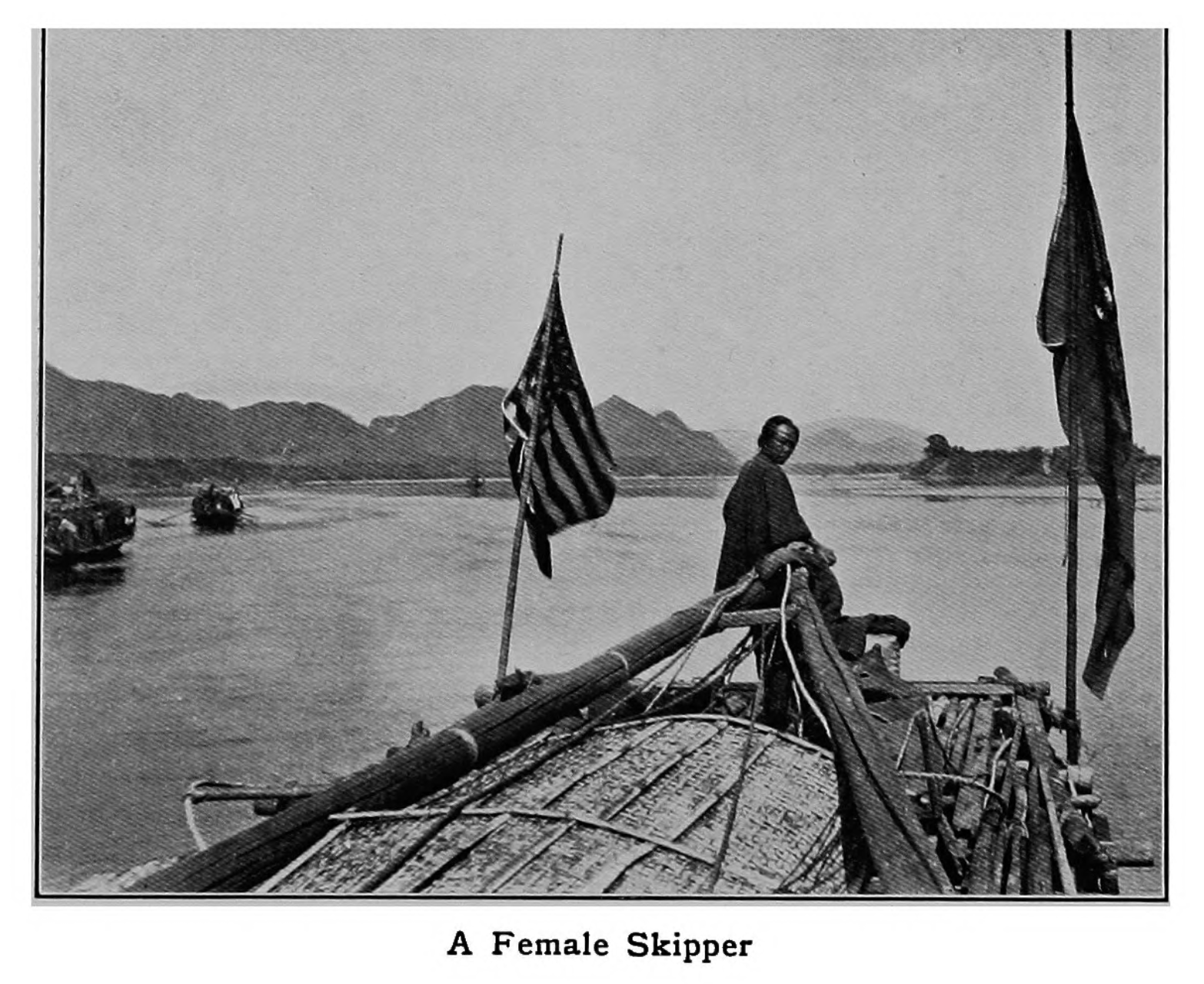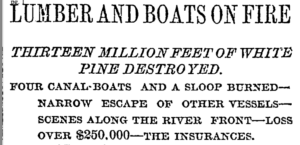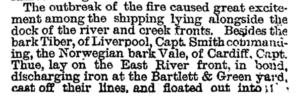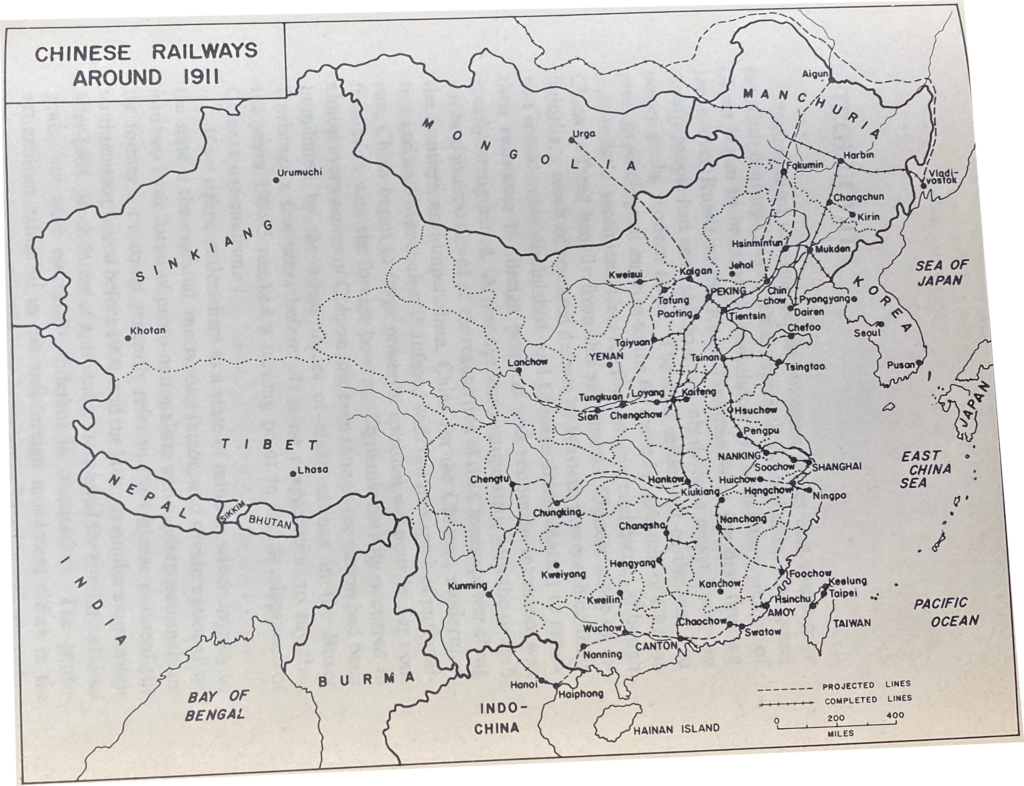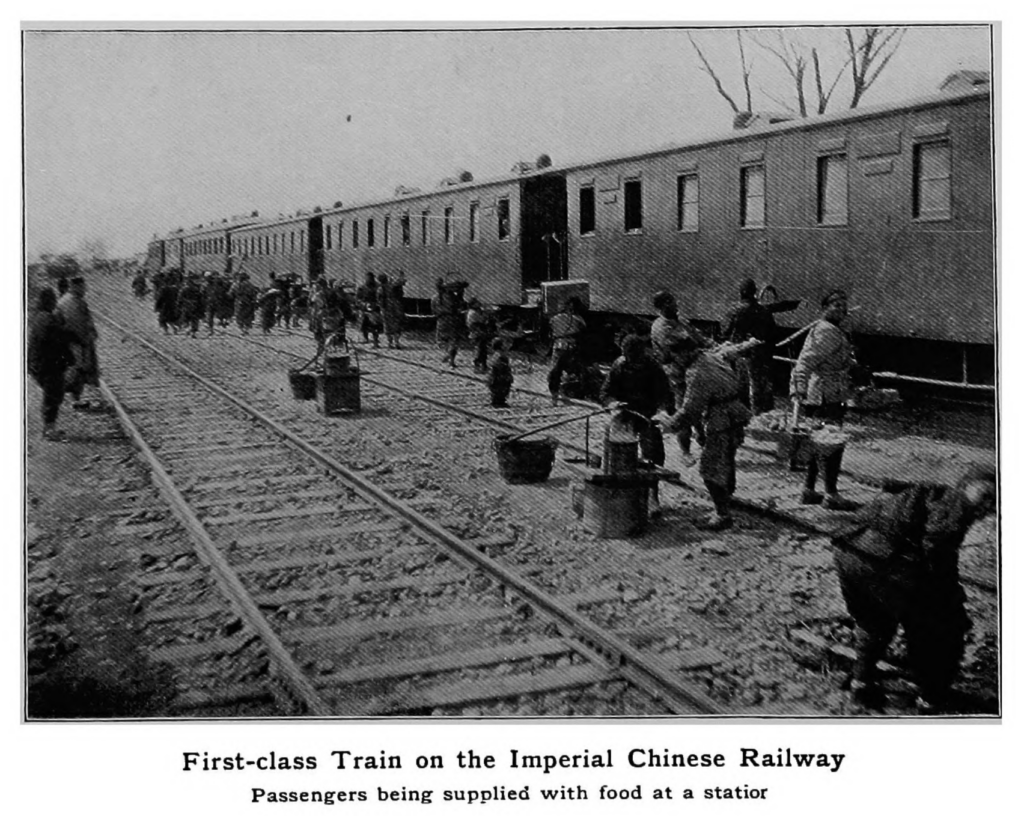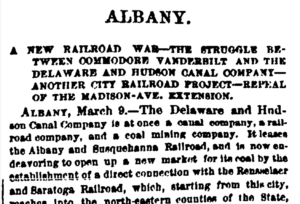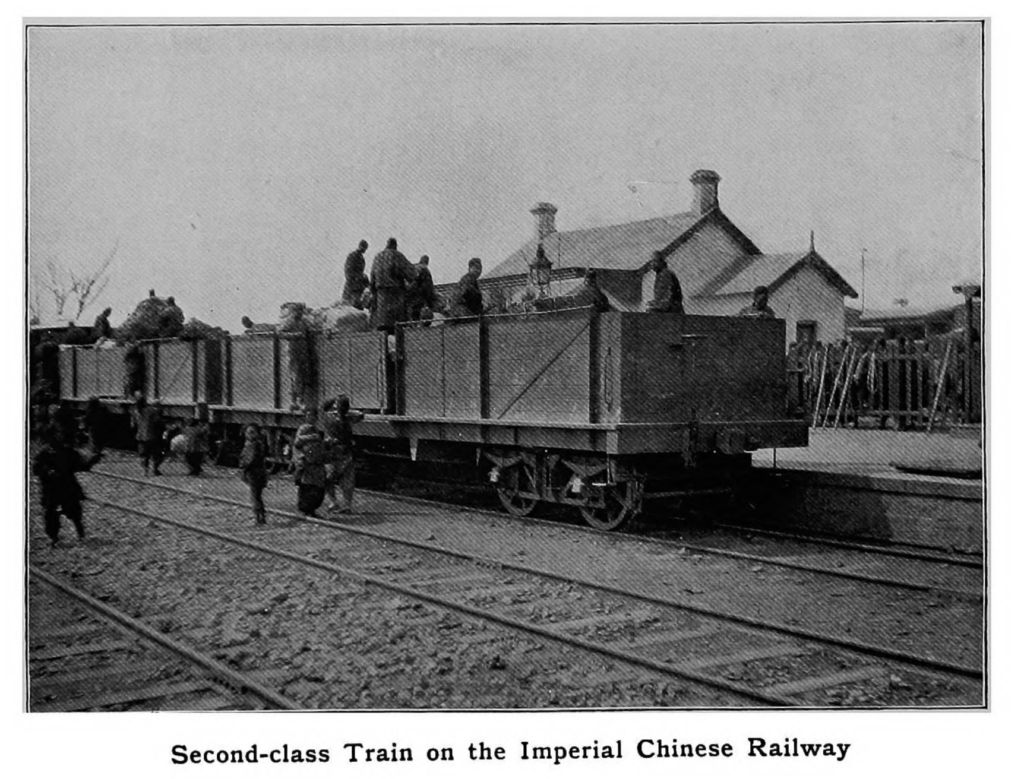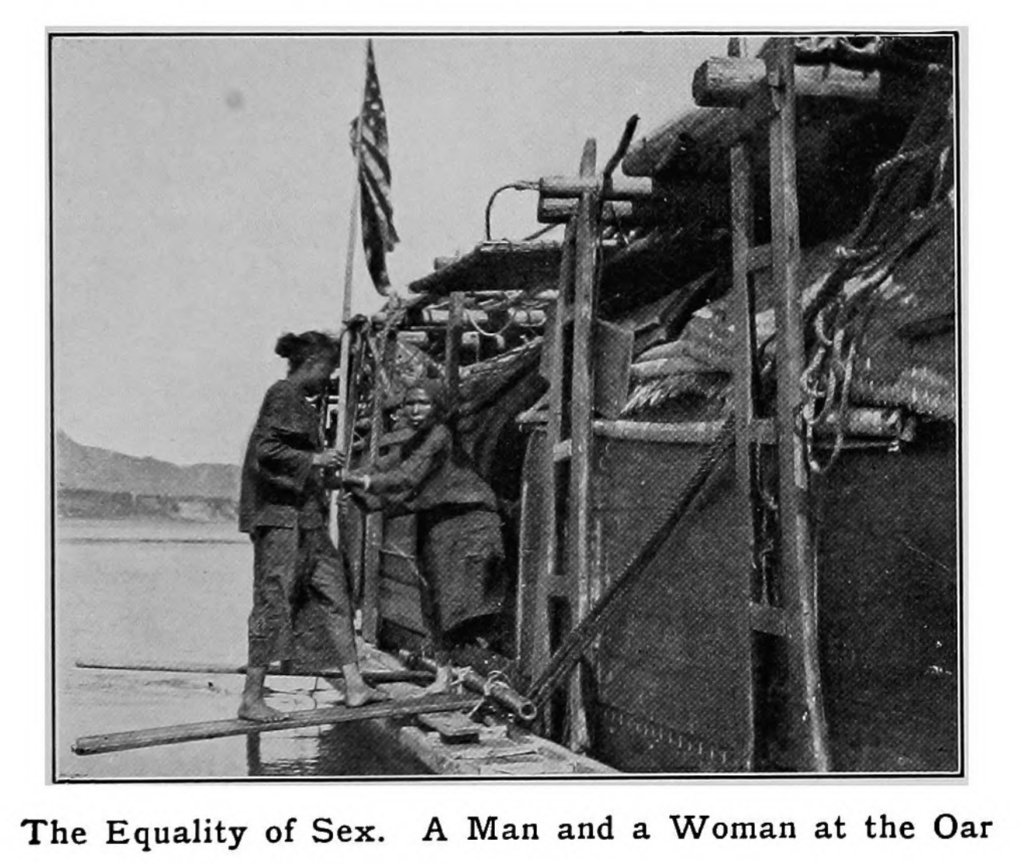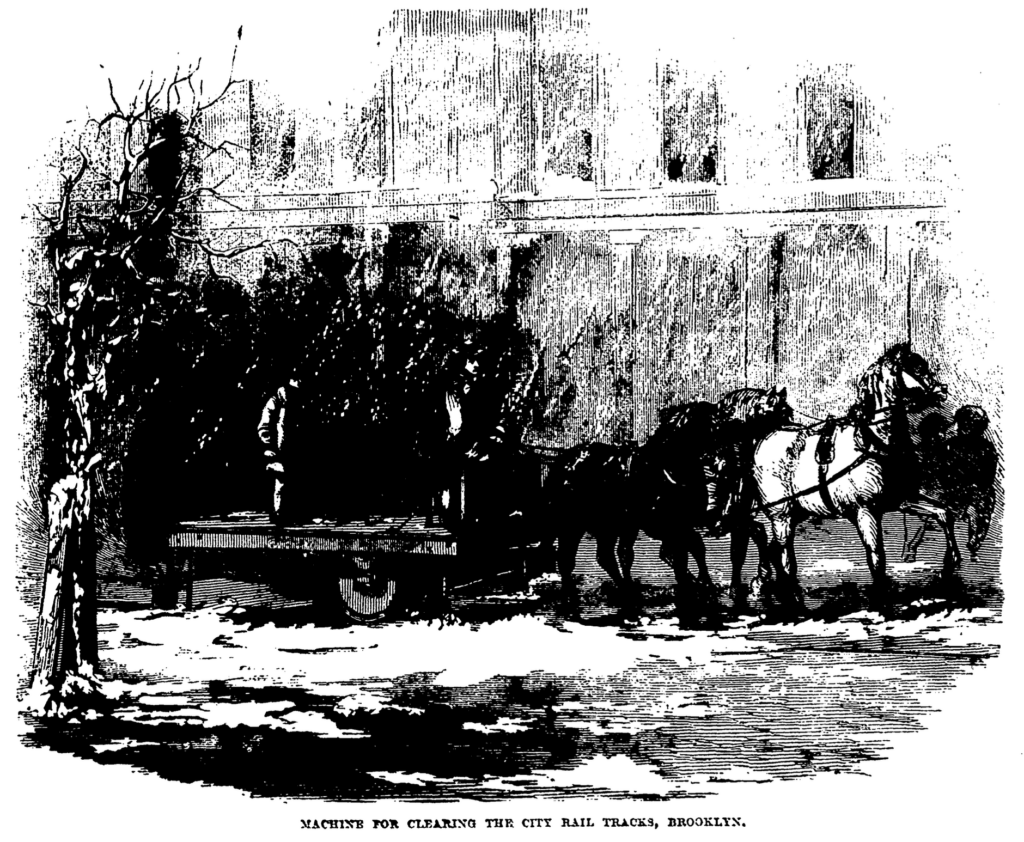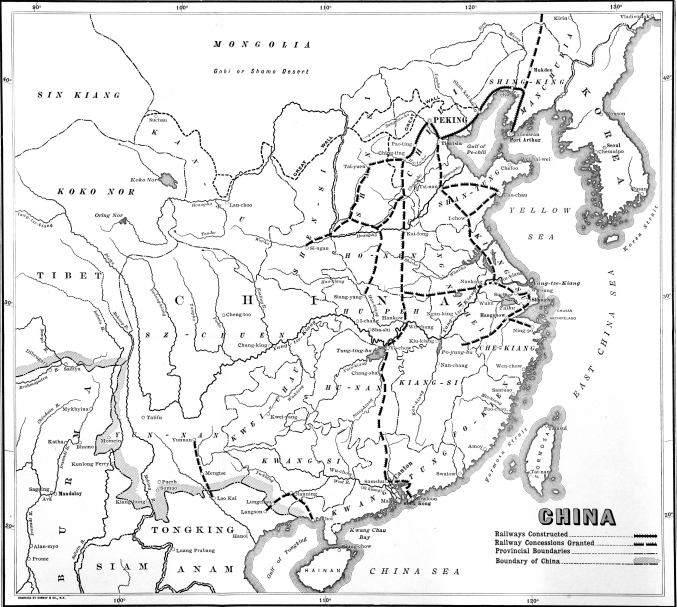One stray sentence from an article about a Lumberyard fire struck me strangely:
“The bark Tiber was the last to leave. She had just brought from China the rails of the road which the Chinese Government ordered torn up some time ago.”
I wondered, what rails? Why didn’t China want them? Why did they leave China and end up in Greenpoint?
June 28, 1877 sees The York Daily reporting that the opening of a railroad in China, “built by English capitalists, turns out to be a great success.” Then, the best part:
“The Chinese themselves have now undertaken a line to run from Woosung to Soochow, and English capitalists are not indisposed to advance the funds on an enterprise which promises to pay.”
That’s the whole point – that’s the whole goal: to get into the Chinese economy, and take it over – with only noble intentions, of course. The article ends,
“…it is estimated that before many years English and American engineers, contractors, and builders will be having something to do with the vast interior of the Chinese Empire.”
Imagine that in reverse. Imagine a Chinese newspaper writing:
“It is estimated that before many years Chinese and Japanese engineers, contractors, and builders will be having something to do with the vast interior of the United States Empire.”
Um, no. The Monroe Doctrine would have Uncle Sam machine-gunning anyone near any coast.
As the contemporary Hong Kong Railway Society explains,
“In view of opposition from Chinese officialdom to the construction of railways, [the western capitalists’] plan to build the line was initially concealed from the authorities by describing the intended project as a “Road.”
This is typical bully-behavior: set expectations, violate them, act like What’s The Big Deal if I violated your standards? You liked it, didn’t you?
The Pall Mall Gazette reported on July 1, 1876 that,
“the construction of the railway between Woosung and Shanghai was against the wish of the Chinese Government, and a direct insult to that Government on the part of the foreigners; that throughout all the countries in the world the power of building roads was reserved to the Government, and in no instance had railways been allowed to be built in one country by the people of another against its will.”
Nevertheless, on August 15 The Woman’s Exponent was reporting that the railroad was open and had been built “with British capital.” Then they say the part out loud that they will deny later:
“This opens a new field for American enterprise in China, undoubtedly they will soon establish a vast railroad system.”
The whole point was for British capitalists to get their way into the Chinese economy, to profit from it for many years – and the colonizers have the typical entitled attitude of shock that their victims would not want to be exploited.
The Chinese government could and would read the western press and see the absolute chaos of the capitalist railroad system in the US. One example, of many:
But by August 18 The Birmingham Weekly Post was already alerting that,
“A Shanghai telegram … states that it is asserted beyond doubt that the Chinese authorities intend to stop the Woosung Railway in October.”
The Hong Kong Railway Society admits that, “Outbreaks of ‘public discontent’ were orchestrated by officials.”
The Democratic Leader reports on October 27 that,
“The Chinese authorities have officially taken possession of the railway between Woosung and Shanghai and stopped all trains thereon.”
As the tension over the railway increases, the western press emphasizes the xenophobia. The Detroit Free Press writes on October 30 that “The Chinese seem to be thoroughly averse to learning anything.” This, while they are quite clearly learning how western capitalists take over societies, and learning how to oppose it in their own society. Then the Press balks at cynical accusations:
“There was no ‘ring’ interested in the construction of the road, and it was built for a very small profit upon cost. There was no stock, and consequently no stock gambling; and there were no first mortgage bondholders to step in and take the road after it got fairly in running order.”
They don’t state that the capitalists definitely plan on all this, and that the railway was Step 1. It’d be like saying in 2001 that Dick Cheney didn’t want to invade Iraq, that’s ridiculous, henny-penny the sky is falling hyperbole – and totally true.
But The New York Daily Herald tells us on November 8 that
“Lord Derby has notified the Chinese government that Her Majesty’s government will regard the destruction of the Woosung Railway as an unfriendly act.”
Not unfriendly! Be friendly, China! Friendly like capitalists!
The Detroit Free Press continued on November 18 about
“Chinese Superstition: The introduction of the Woosung Railroad has sent the Chinamen crazy. They fear invasion by spirits and hobgoblins everywhere.”
That the evangelical Christian western press could dare insult some other culture’s “superstitions” is beyond hypocrisy.
The Detroit Free Press ends their article with the usual complaint that “The missionaries get the credit of all the mischief.” Meaning Christian missionaries to China – definitely sent there as a usually vanguard in a colonizing mission, even if the individual missionaries themselves were only there for soul-saving – get the blame for the apparent backwardness of the Chinese people they came to save.
The Times, on Wednesday, December 6, 1876, relates through their Correspondent in Shanghai that, “Some disappointment is felt here that the Woosung Railway question was not definitely settled…” The Correspondent goes on the usual xenophobic condescending way to explain that, “Every one knows that the Mandarins have always opposed railways as they do any other innovation.”
“A short railway from Shanghai to Woosung, at the mouth of the Hwangpoo. … It was useless to endeavoring to obtain the formal assent of the Chinese authorities, but it was thought that a railway once constructed on land duly acquired by purchase might be tolerated, and serve as a model for the instruction of the people.”
“The Chinese … were ignorant, superstitious, and easily excited…”
On Friday, December 22, 1876, the Western Mail in Wales reports that,
“a compromise has been effected – the Chinese Government have bought the line at a price to be fixed by arbitration, and it is to continue working for a year in the hands of the present company.”
In September 1880 The Cincinnati Enquirer tells us the names of 2 of the now-4 Connecticut Yankee investors: Mr. Charles E. Hill, of Bridgeport, CT, and Mr. O. B. Bradford. But after these individual investments to trick the Chinese authorities, a corporation was created. The Enquirer explains that
“…an English Company was formed, with a prospectus which promised the formation of a steam narrow-gauge railroad… The company usurped the right granted by the local Governor at Shanghai to Mr. Charles E. Hill and others and started to construct their own railroad.”
So individuals bought land in China, said they were going to make a road, then turned the rights over to a corporation of themselves, and said they were building a railroad. Very genuine.
Imagine this: Four rich Chinese men buy up a strip of land between New York and Philadelphia. They then turn the rights of the land over to a Chinese corporation, and announce they will build a railroad there. The US authorities say no. The Chinese corporation does it anyway. And the whole time the Chinese press is castigating Americans as stupid and unwilling to improve their lives.
Anyway, as the Hong Kong Railway Society informs us, “the engines and rolling stock were shipped to Taiwan, where Chinese businessmen were hoping to build a railway.” No comment needed – the double-standard is plain. But this Taiwan railway
“never came to fruition until many years later whilst the original Woosung Railway equipment was left to rust on the beach where it was unloaded.”
Until that time when it made its way to Greenpoint, where rusty second-tracks fit right in with the capitalist industrial chaos.
Then the rails make their way to Brooklyn. The Springfield Reporter on June 11, 1880 writes,
“A ship is under headway to this country with four hundred tons of iron rails which were sent to China to build the first railroad ever built in that country. … [but] the rails [were] taken up and sold. … An American purchased the rails and shipped them to the United States.”
July 30, 1880 sees The Morning News tell us “the bark Tiber brought to New York from Shanghai the iron…”
To explain more fully how absolutely effed up the US railroad system was, we consult Gustavus Meyers’ History of the Great American Fortunes. Meyers details the capitalist railroad exploitation, United States style, that was playing out on Wall Street, in the courts, and in the banks – where rich people are able to ruin their own companies and still come out richer and owning more.
Jay Gould and Russell Sage played
“no part whatever … in the building of [the] elevated [railroad] system; the franchises by which the roads were constructed and operated had been obtained by bribery. After other capitalists had done the bribing and had shown how profitable these elevated railroads were, Gould and Sage reached out for their ownership.
“[An] old device, so familiar in railroad building, of organizing a construction company, was employed in the building of the elevated railroads. A company called the New York Loan and Improvement Company was brought forth to carry on the work of construction. The same men were directors of both construction company and elevated railroad companies, and made fraudulent contracts with themselves. Such capitalists and “philanthropists” as George M. Pullman, John P. Kennedy and others profited heavily from these fraudulent transactions…
“After the first two elevated railroads were built, a new scheme of plunder was conceived and carried out. A company called the Manhattan was chartered with a capital of $2,000,000, ostensibly to build elevated railways. But it did not build a single foot; the same clique in control of the New York Loan and Improvement Company turned up in control of the Manhattan, and they leased the two exisiting roads to the Manhattan. Little actual cash did this lease cost them; they illegally increased the Manhattan’s capital stock from $2,000,000 to $13,000,000, which amount they divided as loot. By stockjobbing methods Gould and Sage then crushed out most of the small stockholders, and secured control. They proceed to water the stock still more, consolidate the whole system, and crowd out the more powerful stockholders.
“Certain of the heavy stockholders, such as [Cyrus W.] Field, [the originator of the submarine cable] stood in with Gould and Sage, but others bitterly fought the various fraudulent moves and expedients that Gould and Sage brought into play. The outcome of the ensuing legal contest could be forecasted. Gould seldom went into court without owning his judge. The judicial tool this time was Westbrook of the New York Supreme Court; when Gould had started out in his career of theft, Westbrook had been his first lawyer. Now as judge, Westbrook issued orders and injunction backing up Gould and Sage’s fraudulent acts. His subservience was so notorious that he once held court in Gould’s private office in the Western Union Telegraph Company’s office and issued an injunction.
“After becoming absolute masters of the elevated railway systems in New York city Gould and Sage no longer had any use for Field. At the first opportunity the stock marked was rigged to divest Field, and he was thrown out to linger and die a ruined man.
“The New York State Assembly later impeached Judge Westbrook for malfeasance in office; but from the Senate, as trial body, he managed to get a verdict of acquittal.”
——————–
an audio version of this article is available
on the Internet Archive here.
